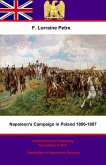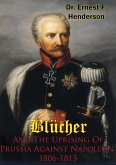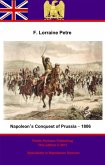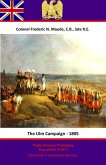Prussia had sat on the sidelines in 1805 whilst Napoleon hammered the Austrian and Russian armies in a dazzling series of victories culminating at the battle of Austerlitz. As the court of Frederick William III awaited a favourable moment to intervene, they looked on their army with a misplaced confidence based on the deeds of Frederick the Great, his well-drilled infantry and daring cavalry. However, the army had not kept up with the development of the French: their training suffered the constraints of financial cut-backs, their leaders were divided, vain, egocentric, incompetent or just too plain old. Frederick William was determined to cross swords with Napoleon, using a violation of territory by the French the year before as a pretext he started to mobilise his troops. His opponent was at the height of his military power. Although he did not really want to have another war so soon after crushing Austria, Napoleon was not the sort of man to back down from a challenge from the Prussians.As the troops readied themselves for the upcoming war, the Prussian generals vacilitated, abrogated responsibility, argued and split their forces. Napoleon organised his men into three mutually supporting columns as he invaded Prussian territory, unable to divine the intentions of his opponents. He was ready for all situations. Napoleon with his main army faced a sizeable portion of the Prussian forces at Jena, whilst Davout, perhaps his best subordinate, stood outnumbered but unshaken at Auerstadt. The fighting was brutal, short and bloody and would lead to Prussia being humbled for years to come, seething for revenge.This book formed part of the Special Campaigns series, which was written in the early years at the turn of the twentieth century to provide detailed assessments of the historic campaigns of the past for the benefit of the officers of the British Army. They were all written by current or recently retired officers of the Army who shared their wealth of experience and insight to a new generation, each officer having had a specialist area of expertise. Colonel Maude was an authority on the campaigns of Napoleon, and wrote three volumes for the series, the others focussing on the 1805 and 1813 campaigns. He describes the campaign in brilliant vivid detail, using material from the official archives of both France and Prussia as well as numerous eye-witness details.A fascinating book in an excellent series.Author - Colonel Frederic Natusch Maude, C.B., late R.E. (1854-1933)Illustrations - 5 Maps and Diagrams.
Dieser Download kann aus rechtlichen Gründen nur mit Rechnungsadresse in A, B, BG, CY, CZ, D, DK, EW, E, FIN, F, GR, HR, H, IRL, I, LT, L, LR, M, NL, PL, P, R, S, SLO, SK ausgeliefert werden.









